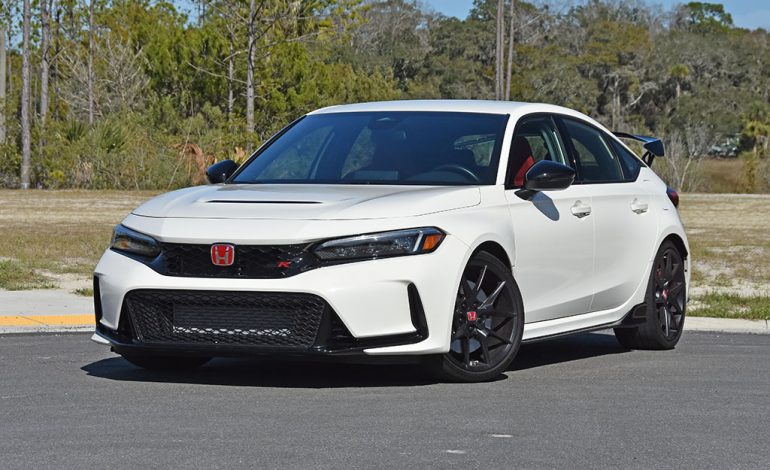
I can remember when I was in high school, and I wanted a Honda Civic for my first car, but my parents had other plans. I was enamored by what Honda offered, even in the base version of the Honda Civic, which was the DX manual transmission trim at the time. As years passed by after high school and maturity got the best of me, I was captivated even more by Honda’s offerings of the new Civic Si for the 1999 model year and could not wait to see a Type R Civic make it to our shores – inevitably, one year in the future. That time finally came, but because of how my age is set up, I unfortunately, missed the boat for having that desire burning to want the Civic Type R that we got in 2017, mostly because of the styling – so I purchased a Ford Focus RS instead.
Now, we’re into the 11th generation of the Honda Civic, where a new Type R has been birthed, and it seems mature enough for those my age to want one, just to play with and fit into a younger crowd. For me, the playing will just be in the confines of getting a new 2024 Civic Type R for a weekly review, and what a review it is because I rather like this Type R!
Also, don’t forget that you can get discounted new car pricing with a free quote through qualified local dealer partners.
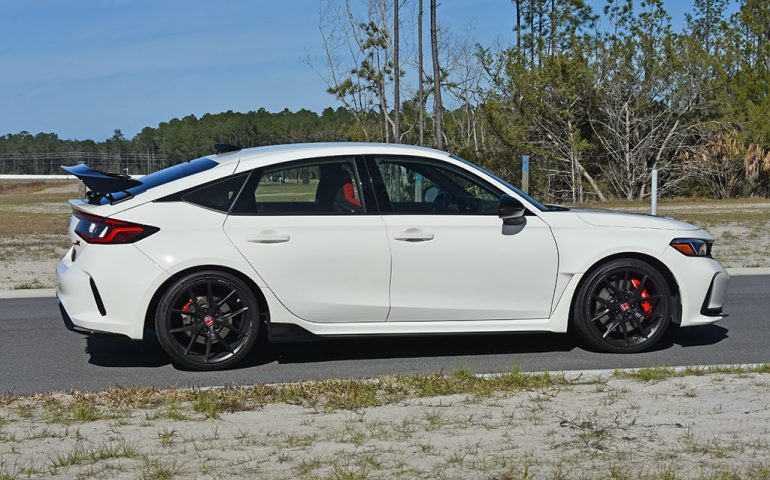
The new Honda Civic was already a winner in my book for most of its trim levels, but the Type R brings a whole new level of performance that feels more substantial than what is printed on paper. The print says we have a 2.0-liter turbocharged 4-cylinder engine with 315 horsepower and 310 lb-ft of torque mated exclusively with one of the sweetest 6-speed manual transmissions around. Not only does Honda know how to do a manual transmission, but the integration of the Civic Type R’s updated turbocharged 4-cylinder engine, adaptive suspension dampers, a limited-slip differential, Brembo brakes, and bright red hip-hugging seats up front make this the best front-wheel-drive vehicle for enthusiasts around. Yes, I just said that. Of course, you must make an exception for the Civic Type R’s close cousin, the new Acura Integra Type S that I reviewed a few months back, as they both utilize a similar platform and drivetrain.
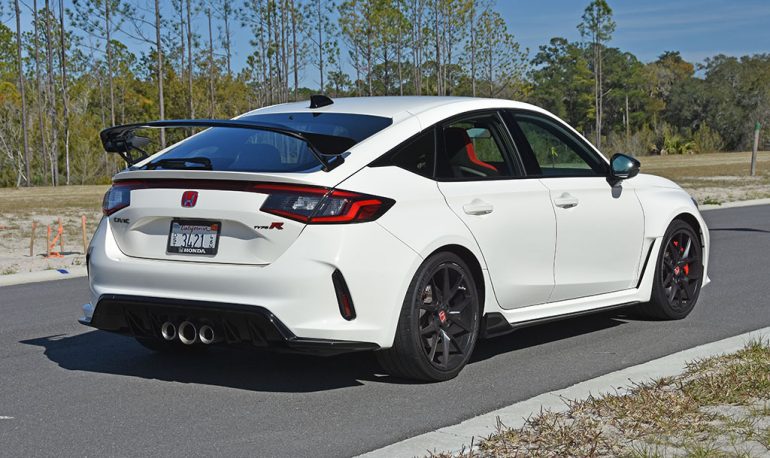
The new Civic Type R is a front-wheel-drive marvel. The engine has a progressive power band where it essentially explodes in the upper rev range, much like how Honda’s old VTEC engines used to do upon their camshaft timing switchover when you rev it to the sky. The front wheels tend to break traction as the digital rpm needle sweeps towards its 7,000 rpm redline in first and second gear. Moreover, first gear is almost a front-wheel burnout gear, as the front tires can’t hang on to the surge of power. There’s minimal torque steer but you must pay attention as the Type R will start to drift left to right upon hard acceleration.
In a way, the Civic Type R feels like it is on rails as the suspension remains tight even in the Comfort drive mode, with the dampers set at their softest setting. The Sport drive mode is a nice medium for steering effort, throttle positioning, and the damper setting. However, the +R drive mode is a bit too aggressive for the damper setting, as it feels like you’ll shatter your teeth from the bouncing body of the Civic, which has a rather rigid chassis. I even think that the dampers in the +R mode are too aggressive for the track, which I imagine the Civic Type R feels at home on. I appreciate that the drive modes are retained from their previous setting upon startup of the Civic Type R.
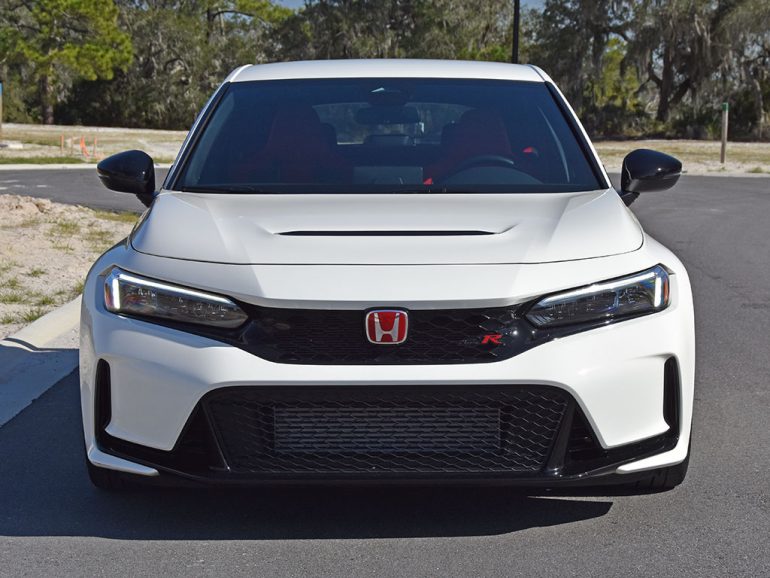
There are no qualms from me about how the Civic Type R drives as it is nearly razor sharp in responding to driver inputs, and rowing through the gears with such a slick 6-speed manual feels natural and often forgiving. I even welcome the updated rev-match system that automatically blips and matches the throttle upon downshifts – it keeps me from mastering my self-proclaimed art of heel-toe shifting on yet another vehicle.
I can’t help but compare the Civic Type R and Integra Type S, but there are some slight differences, starting with how the Civic Type R feels more raw and rough around the edges. With that, the Civic Type R seems to have more sound sent through the cabin as you rev the engine to 7,000 rpm. The ride quality is certainly stiffer in the Civic Type R, and it almost feels like you can toss the Type R around with a bit more confidence, even if it is marginal. Otherwise, you have the obvious differences in styling and seating.
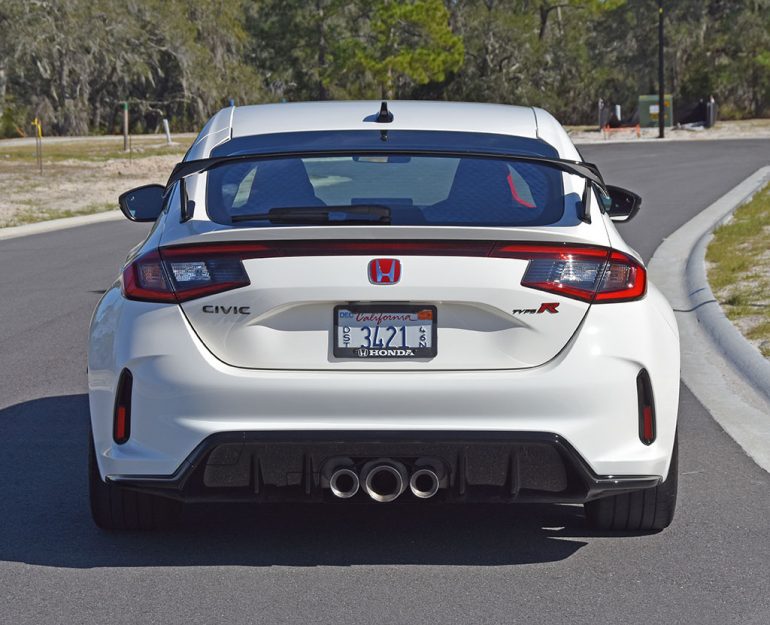
The Honda Civic Type R, just like the Acura Integra Type S, returns decent fuel economy numbers if you drive civil and follow all of the road rules without welcoming horn beeps from neighboring traffic. The highway EPA estimate of 28 mpg is the only figure I could match in the real world. Otherwise, the EPA estimates of 22 mpg city and 24 mpg combined, seem to come up short during my “fun” time with the Civic Type R. A 12.4-gallon tank full of premium fuel just isn’t enough when you have as much fun as the Type R wants you to have.
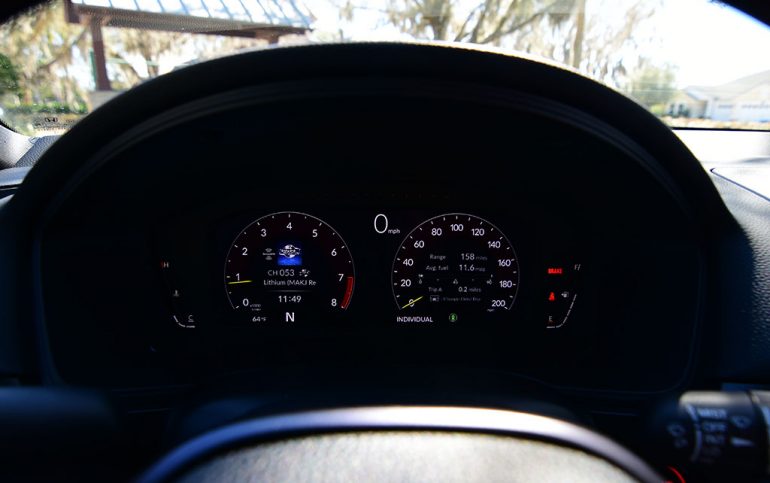
The interior of the new Honda Civic received plenty of praise from me in previous reviews of the new generation. For the Civic Type R, things are kept tidy, but the differences are the bright red carpets/floor mats, red accents, and the heavily bolstered front sports seats. Buyers of the Civic Type R must try out the front seats first to be sure that they feel comfy, as they are certainly not for everyone as they have aggressive bolstering. Such a trait is one big difference from the new Acura Integra Type S, with its seats being more forgiving for bigger folks, but the Civic Type R is much more aggressive and does not have a heating option like the Integra Type S.
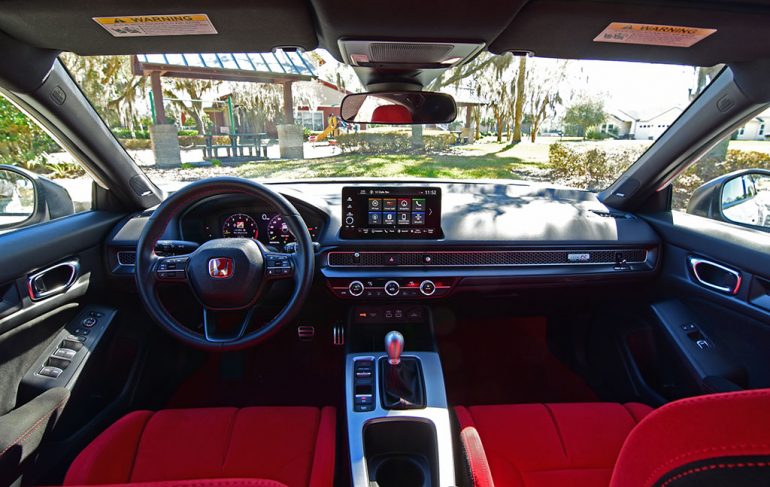
There’s a lot to welcome in the new Honda Civic Type R for its simplistic cabin but one that’s very functional for its purpose. The larger 9-inch infotainment touchscreen is a replicated page taken from the upper trim levels of the Civic and the Integra, which features a simple operation with a lot of embedded functions. There’s also wireless (and USB-connected) integration of Apple CarPlay and Android Auto, along with a wireless charging pad. One thing about the charging pad: if you drive the Civic Type R like it is intended, your phone is prone to sliding around in the wireless pad’s cubby area and never receiving a proper charge.
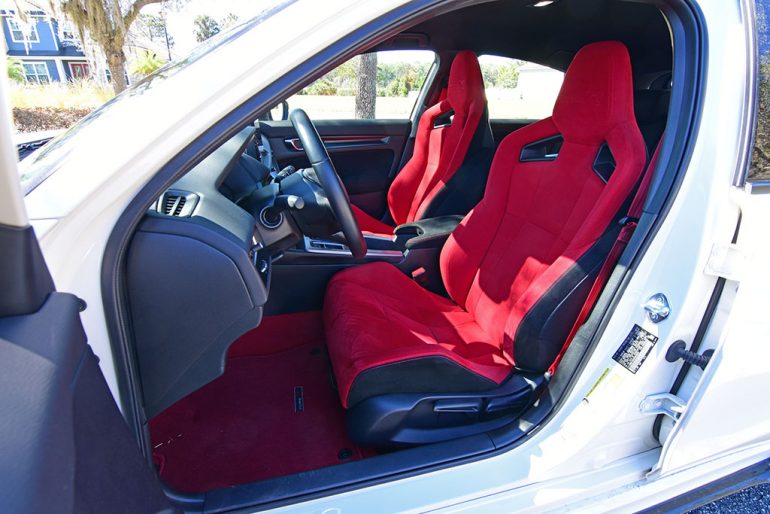
The size of the new Civic has obviously grown quite a bit, and the extra space gives to a rather accommodating cabin with a lot of leg, shoulder, and headroom – again, that’s if you fit comfortably in the heavily bolstered seats up front.
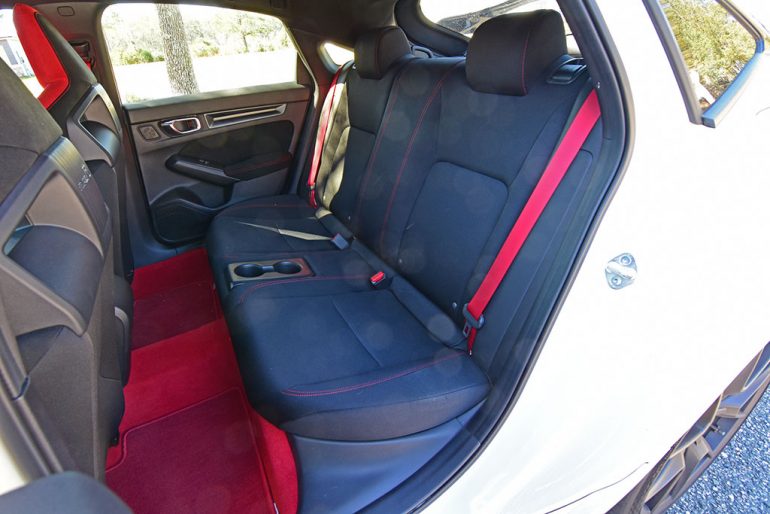
Being a manual-transmission vehicle, Honda still incorporated a full suite of active safety features in the Civic Type R, which include the highlights of adaptive cruise control, forward collision warning/emergency braking, lane departure warning, lane keep assist, blind-spot warning, and rear cross-traffic warning. The backup camera system is a single-zone setup with active turning guidelines.
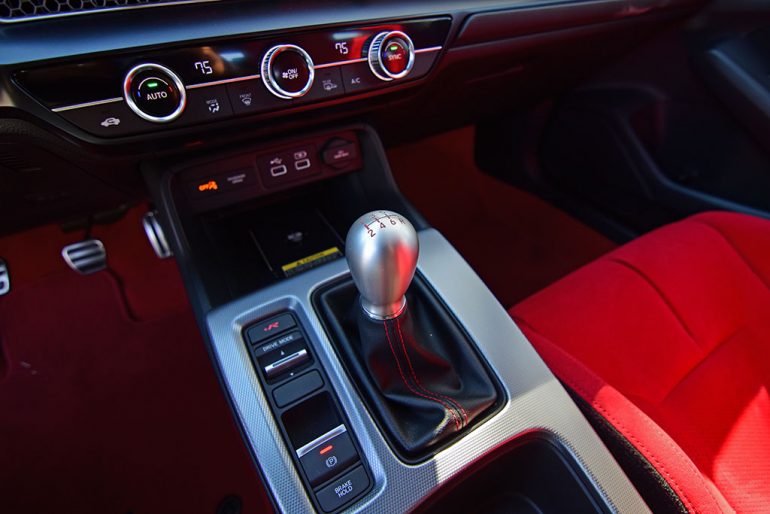
Honda remains to give enthusiasts an affordable option in the new Civic Type R, keeping the pricing scale at the reasonable $44,795 for starters, which doesn’t go far from such a price considering there aren’t any large options available to add, other than my test vehicle’s classic Championship White paint ($455) and the availability of a $3,100 forged wheels package.